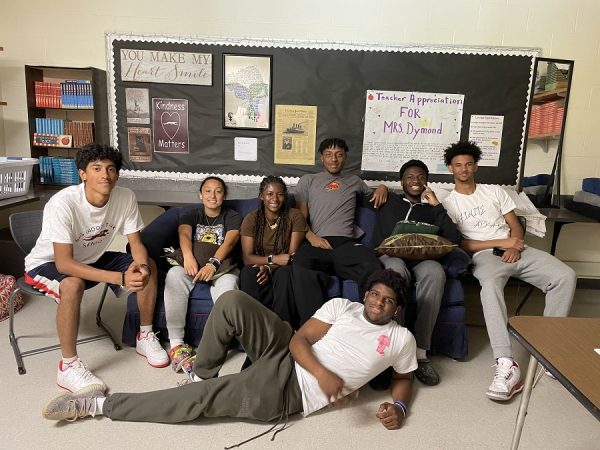Children and cell phones – is it necessary?
As technology continues to advance, so do our tendencies with how we use it. While our growing generations become increasingly reliant on smartphones and screens, it is necessary we ask: are these gadgets doing more harm than good? Should young children in elementary school be allowed to have them?
After interviewing thirty students and teachers at Naugatuck High School, we found that 47.7% of the NHS community knew that exposure to cell phones in children can rewire their brains and lead to bad communication skills.
The federal government, through the National Institutes of Health, has launched a landmark study of young minds looking into the effects of phones and other screens to see how it has impacted brain development.
Scientists have been interviewing nine to ten year olds and scanning their brains in twenty-one sites across the United States. They are trying to understand how screen time impacts the physical structure of brains, as well as the emotional and mental health aspect of the brain.
Dr. Gaya Dowling of the National Institutes of Health discussed the brain patterns of children who spend a lot of time on screens.
“The colors show differences in the nine and ten-year-olds’ brains. The red color represents premature thinning of the cortex. That’s the wrinkly outermost layer of the brain that processes information from the five senses… What we would expect to see later is happening a little bit earlier,” Dowling said.
Scientists do not know yet if these patterns are caused from screen time, but scientists do know that children who spent more than two hours a day on screens got lower scores on assessments that tested thinking and language.
“I have a little sister that is in elementary school and I don’t think there is any value in her having a phone. They already use the iPad for games. They should be supervised before being allowed on the internet,” one Naugatuck High School student said.
We also discovered that with this information, 63.6% of people of the Naugatuck High School community did not think that young children in elementary school should have cell phones.
“They should not be allowed to have phones. The importance of a phone is for communication not playing games. If they need to reach their parents they can go to the office and call them,” stated one Naugatuck High School student.
Twenty-five percent of people thought that children should be allowed to have cell phones at this age. A bit over eleven percent of people said that sometimes children should be able to have cellphones in elementary school.
“Technology provides an immersive and interactive way for kids to receive an education but if [children] use them in a mindless way it will most likely not be as effective,” a Naugatuck High School student said.
“I think that it’s going to be up to the parents if they make that choice. It’s up to them to make an informed decision,” said another NHS student.
Although there are safety benefits of children having cell phones, there are still drawbacks of owning them. Parents are grappling with the idea of kids having a phone, and their brains being negatively affected, or them not owning a phone at all, leaving their children with having no access to any form of communication in emergencies or with the technology of the advancing world.
“I think that it’s beneficial for young children to have access to phones… it’s not harmful for them to play educational games on the phones.”
Overall there will always be pros and cons in many situations nowadays. According to the statistics from the Naugatuck High School community if using cellphones is done with moderation then families can ensure both safety and good mental health in children.

I am a junior at Naugatuck High School. I would like to pursue a career in nursing. I took journalism because I want to become a better writer.

I am in the 12th grade. I decided to take this class because I found it interesting. In the future I want to be a divorce lawyer.









